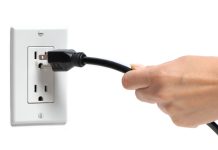Gambling has contributed more than $385m into Pennsylvania coffers in the first year since expanded gambling in the state was made law, surpassing state budget estimates in the process according to a new report by PlayPennsylvania.com. The revenue, said the site, has come from up front licensing fees for casinos, online casinos and sportsbooks, as well as mini-casino auction profits and tax revenue from lottery expansion and daily fantasy sports.
The revenue estimates were tabulated by PlayPennsylvania.com using a combination of official statistics and estimates based on iLottery, keno, and virtual sports sales numbers. Combined, they show that betting and gaming activities have netted Pennsylvania more than $1m a day since late 2017.
“The most notable aspect of the significant revenue that has been generated is that this is almost completely from fees, rather than tax revenue gained from gamblers,” said Jessica Welman, analyst for PlayPennsylvania.com. “Clearly there is enough interest in Pennsylvania’s enormous market so far to generate the fees.”
Using return-to-player rates of the games, the site estimates that the state has collected more than $23m in revenue from online lotto games ($19.6m), keno ($3.6m), and virtual sports ($87,000) throughout October. Other sources of revenue so far from the law include: Mini-casino auction profits, $128m; Interactive gaming petitions, $94m; casino licensing, $78m; sports betting petitions, $60m; and Daily Fantasy Sports tax revenue, $1.4m.
By comparison to the gambling expansion, the state collected $799.8m in taxes from state wide slot revenues in fiscal 2017-18. Pennsylvania estimated in February that the state will generate more than $34bn in general fund revenues for its 2018-19 fiscal year.
“If the point of the expansion was to fill short-term gaps in the state’s budget, then the expansion would have to be considered a success so far,” Welman said. “We believe that the gambling expansion will eventually prove to be a winner for the state’s budget, but the long-term picture is less certain. More casinos and sportsbooks must open before we get a clear picture of whether Pennsylvania’s relatively steep tax rates and license fees will produce the desired outcome.”
In addition, Pennsylvania should begin adding revenue from online gambling in early 2019, and further down the line, mini-casinos should enter the fray. “The addition of retail sports betting should help buoy a slowing Pennsylvania casino industry,” said Dustin Gouker, lead sports betting analyst for PlayPennsylvania.com. “If New Jersey is any indication, though, the more significant revenue generator will be online sports betting. A successful rollout there should generate millions of dollars in tax revenue for the state.”














